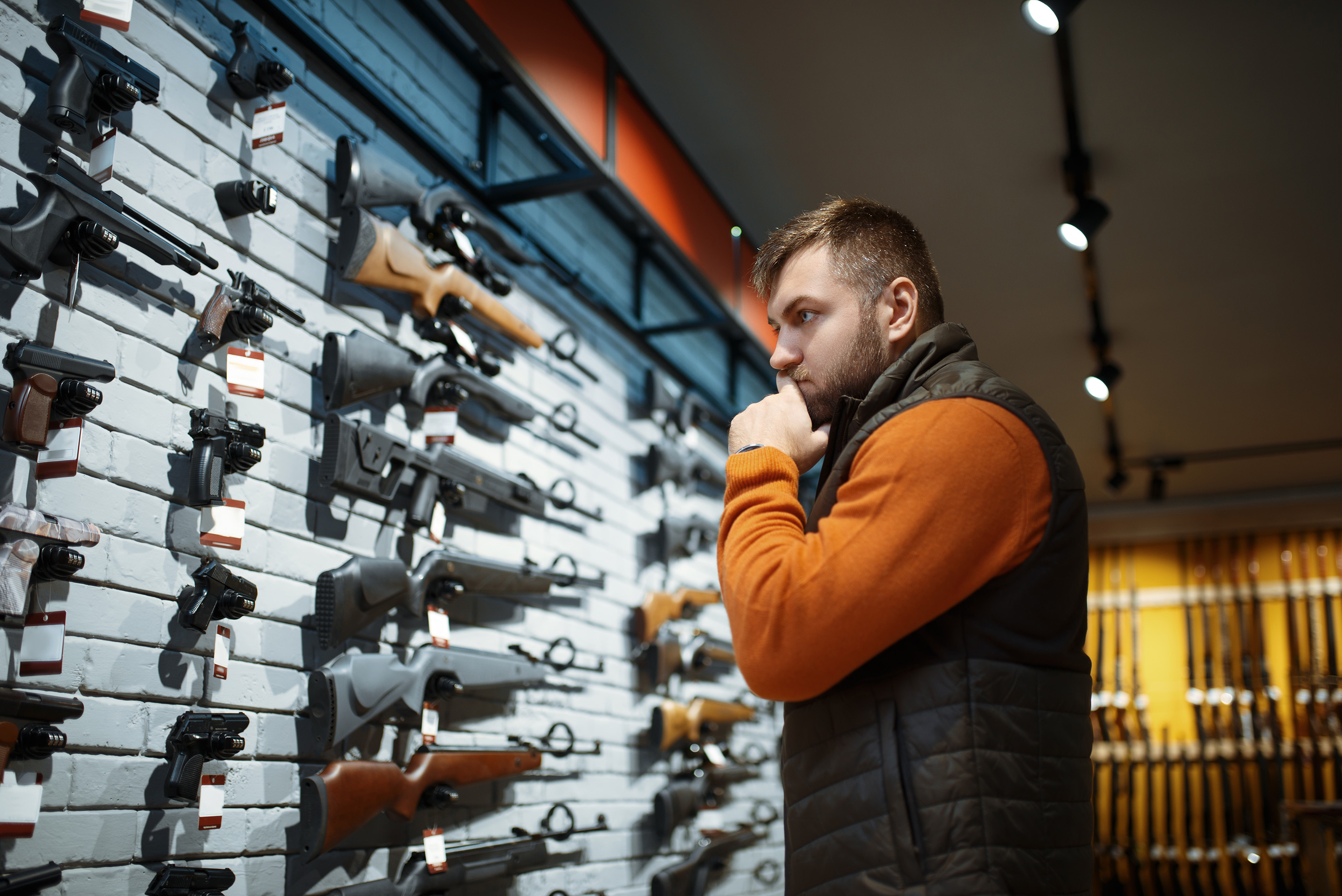
Stress related to the coronavirus pandemic and the uncertainty of what the future holds is motivating people to purchase firearms, a trend that may be more prevalent in those who already own firearms, according to a Rutgers study.
The study, published in the Journal of Psychiatric Research, found that people intending to acquire a firearm in the next 12 months are less tolerant of uncertainty, have exaggerated threat expectancies and are experiencing more severe COVID-19 specific fears. They also were more likely to have experienced suicidal ideation in the past year, to have worked in law enforcement, and to have been considered essential workers during COVID-19.
“Essential workers are serving on the front lines of the pandemic and many are already facing systemic inequities that leave them experiencing chronic stress. The pandemic may be making that worse and leaving them considering options such as firearms in hopes that they will grant a sense of safety,” said lead author Michael Anestis, executive director of the New Jersey Gun Violence Research Center based at Rutgers and an associate professor at the Rutgers School of Public Health.
“Law enforcement officers already own firearms at a high rate and, in addition to COVID stress, may be experiencing concerns about their place in society as the racial justice movement has shifted public opinion about police,” he said. “The thought of purchasing a firearm in the coming year may bring a sense of normalcy.”
Researchers tracked the firearm purchasing intentions of 3,500 Americans in the coming 12 months: 2,364 who reported not planning to purchase a firearm, 516 who were planning a purchase and 596 who were undecided.
The researchers found that 26.4 percent of individuals who planned to purchase a firearm in the coming 12 months had already purchased a firearm in 2020 as compared to 3.6 percent of those undecided about purchasing and 1.7 percent of those planning not to purchase a firearm. Those planning the purchase firearms also reported owning more handguns, shotguns and rifles than any other group.
These findings point to a group of individuals stockpiling firearms during a particularly chaotic time in the nation. Although those planning to purchase firearms were more anxious than others, they did not report living in more dangerous neighborhoods.
“The drive to purchase firearms during the 2020 purchasing surge seems to be prompted by a sense that times are stressful and the world is unsafe,” Anestis said. “It may be that, for some individuals, acquiring a firearm brings a feeling of control and safety, which would explain the drive to continually acquire more during stressful moments. This fear does not seem to be driven by actual tangible threats in their surrounding environment, though, so the issue here is not that their lives are marked by a spike in violence, but rather that their fears are driving their perception of the world to come.”
The 2020 firearm purchase surge does not guarantee a subsequent epidemic of suicide deaths, he noted, but increases risk. The findings represent an important step in understanding the dynamics underlying the trends in purchasing behavior.


